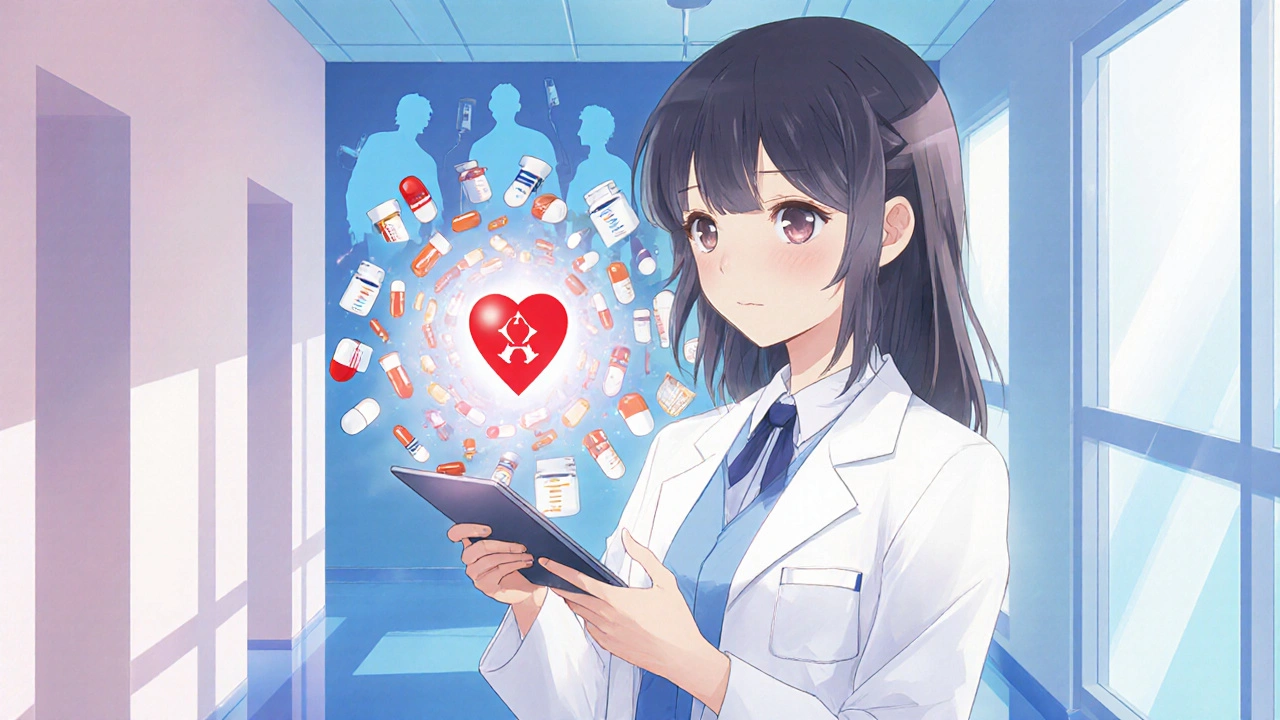
Heart Medication Interactions: Dangerous Combinations to Avoid
Learn which heart medication pairings can be deadly, why they raise heart attack and stroke risk, and how to avoid them with practical checks and tools.
When you take more than one medication, you’re not just adding effects—you’re creating new ones. A dangerous drug combination, a mix of medications that can cause severe or life-threatening reactions when taken together. Also known as harmful drug interactions, it’s not always about overdose—it’s about how drugs change each other’s behavior inside your body. This isn’t rare. One in four adults over 65 takes five or more prescriptions. And many of them don’t know the risks.
These combinations often happen quietly. You get a new antibiotic from your doctor, pick up an over-the-counter painkiller, and keep taking your blood pressure pill—all without telling anyone. But polypharmacy, the use of multiple medications at the same time, especially when unnecessary or poorly coordinated is the quiet killer behind many hospital visits. Take diltiazem HCL, a calcium channel blocker used for high blood pressure and angina and verapamil, another calcium channel blocker often prescribed for heart rhythm issues. Both slow your heart rate. Take them together? Your pulse could drop dangerously low. Or consider cabergoline, a dopamine agonist used for Parkinson’s and prolactin disorders with certain antidepressants. That mix can trigger serotonin syndrome—a fast, scary condition with high fever, confusion, and muscle rigidity.
It’s not just prescription drugs. Supplements like St. John’s Wort, herbal blends, or even grapefruit juice can turn safe meds into hazards. Some people think natural means harmless. It doesn’t. probiotics, live bacteria used to support gut health are generally safe, but if you’re on immunosuppressants, they can cause infections. And fluticasone-salmeterol, an inhaled asthma combo of steroid and long-acting bronchodilator? Mixing it with beta-blockers can block its effect and trigger severe breathing problems.
You don’t need to be a medical expert to protect yourself. Start by keeping a written list of everything you take—prescriptions, OTC pills, vitamins, even herbal teas. Bring it to every appointment. Ask your pharmacist: "Could any of these hurt each other?" Don’t assume your doctor knows all your meds. They often don’t. And if you feel off after starting a new drug—dizzy, nauseous, confused, or your heart races—don’t wait. Call your provider. These aren’t "normal side effects." They might be a red flag.
Below, you’ll find real-world guides on specific drug pairs, how to spot hidden risks, and what to do when your meds don’t play nice. These aren’t theoretical. They’re based on cases people actually faced—and survived because they asked the right questions.

Learn which heart medication pairings can be deadly, why they raise heart attack and stroke risk, and how to avoid them with practical checks and tools.